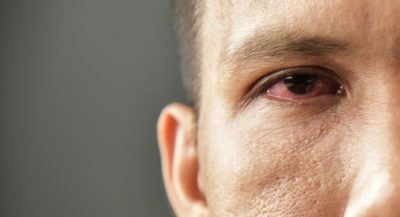As our parents age, their health can start to decline, which is often a source of worry and stress for families. Understanding why this happens is crucial in helping them maintain their health and quality of life. Various factors can contribute to the deterioration of an older person’s health, from the environment they live in to their daily habits and medical care. In this article, we will explore six common reasons that may contribute to the declining health of your parents, focusing on understanding these challenges and offering ways to address them. It’s important to approach this topic with sensitivity and awareness, as it directly impacts the well-being of our loved ones.
Let’s have a look:
1. Risks in Nursing Homes
A significant factor contributing to the health deterioration in older adults, particularly those residing in nursing homes, is the onset of bedsores. These sores, also referred to as pressure ulcers, are a type of injury that affects both the skin and the tissue beneath it, caused primarily by extended periods of pressure on the skin. They are particularly common in individuals who spend most of their time in a bed or chair. Stage 4 bedsores are the most severe form, characterized by extensive damage below the skin, possibly involving muscle and bone. The development of bedsores stage 4 can lead to serious complications, including infections and significant pain.
Preventing bedsores involves regular repositioning to alleviate pressure, maintaining good hygiene, and ensuring proper nutrition and hydration. Nursing homes have a responsibility to provide this level of care, but family members should also be vigilant. Regular visits and check-ins can help monitor the condition of your parents’ skin and ensure that they are receiving the necessary care. If bedsores stage 4 do develop, immediate medical attention is crucial to prevent further complications and begin appropriate treatment.
2. Nutritional Deficiencies
Nutrition plays a pivotal role in the health and well-being of elderly individuals. As parents age, they may experience a decline in appetite or face difficulties in eating certain types of food, leading to nutritional deficiencies. These deficiencies can exacerbate health problems, weaken the immune system, and contribute to a general decline in health.
It is important to ensure that your parents have a balanced diet that meets their nutritional needs. This might involve consulting with a dietitian who can provide guidance based on their specific health conditions and dietary requirements. Simple steps, for example, preparing easy-to-eat meals, enriching food with calories and nutrients, or using nutritional supplements, can also help. Regular monitoring of their weight and eating habits can provide early indications of nutritional issues, allowing for prompt adjustments to their diet.
3. Lack of Physical Activity
Physical activity is essential for maintaining health at any age, but it becomes even more critical as one gets older. Lack of physical activity in elderly parents can lead to a decline in muscle strength, flexibility, and overall mobility, contributing to a higher risk of falls, joint problems, and other health issues.
Encouraging your parents to engage in regular physical activity tailored to their abilities and health conditions is key. These might include light exercises like walking, stretching, or water aerobics. In some cases, physical therapy might be beneficial, especially after an injury or surgery. It’s important to find activities that they enjoy and can safely perform, possibly with the assistance of a caregiver. Regular physical activity not only improves physical health but also contributes to better mental well-being.
4. Social Isolation and Emotional Health
Social isolation is a significant factor that can lead to the decline of your parent’s health. As people age, they often face a reduction in their social circles due to various reasons like the loss of a spouse, retirement, or the relocation of friends and family. This diminished social interaction can adversely affect their emotional and mental health, leading to feelings of loneliness and depression, which in turn can exacerbate physical health problems.
It’s vital to encourage and facilitate social interactions for your elderly parents, which could involve arranging transportation to community events, helping them use technology to connect with distant friends and relatives, or encouraging them to join local clubs or groups that align with their interests. Regular family visits, even if virtual, can also significantly uplift their spirits. It’s essential for their overall well-being that they feel connected, valued, and part of a community.
5. Inadequate Healthcare Monitoring
As parents age, they often require more frequent medical attention due to various age-related health issues. Inadequate healthcare monitoring can lead to the worsening of existing conditions and the development of new health problems. Regular medical check-ups and consistent management of health conditions are crucial in preventing the decline in health.
One practical step is to set up a system for regular health monitoring. This might involve scheduling regular doctor’s appointments, ensuring they have access to necessary medical services, and keeping a well-organized record of their medical history, medications, and doctor’s instructions. If your parents are taking multiple medications, it’s vital to manage these effectively to avoid harmful interactions or side effects.
6. Medication Mismanagement
Proper medication management is a critical aspect of caring for elderly parents, especially when they are prescribed multiple medications. Mismanagement can lead to a range of problems, including ineffective treatment of health conditions, adverse drug interactions, and serious side effects. Ensuring that your parents are taking the right medications at the right times is essential for their health and well-being.
To manage this, consider setting up a pill organizer with daily compartments and clear instructions. Automated medication dispensers or reminder systems can also be helpful. It’s important to regularly review their medications with their healthcare provider to confirm that each prescription is still necessary and effective. Additionally, educating yourself about the medications they are taking can help you recognize potential side effects or interactions and take appropriate action.
Conclusion
Caring for ageing parents requires understanding and addressing a variety of factors that contribute to their health decline. From tackling social isolation to ensuring adequate healthcare monitoring and proper medication management, each aspect plays a crucial role in maintaining their health and quality of life. Remember, even small changes and interventions can make a significant difference. By staying informed and proactive, you can help ensure that your parents enjoy their golden years with the dignity and quality of life they deserve.










